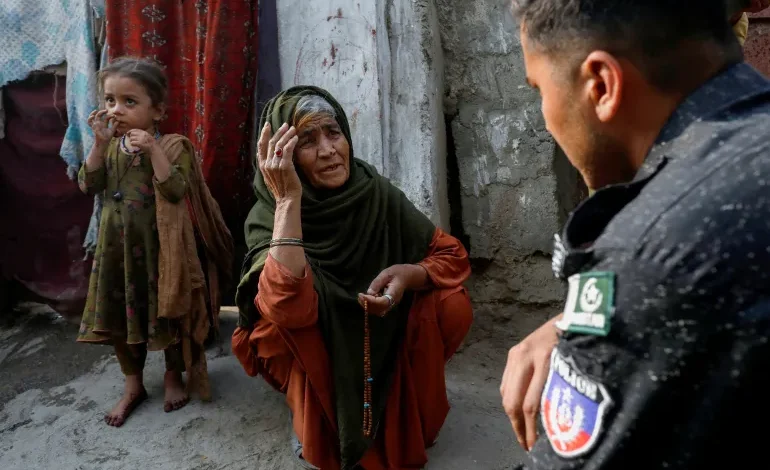The Afghan embassy in Pakistan has issued a stark warning that the Pakistani government intends to forcibly remove all Afghan refugees from Islamabad and the adjacent city of Rawalpindi, Al Jazeera reports.
The embassy, in a strongly worded statement released Wednesday, alleges that Afghan nationals in the capital region are facing arrests, searches, and direct orders from Pakistani police to relocate to other areas of the country.
This development comes amid a worsening relationship between Afghanistan and Pakistan, with Islamabad accusing Kabul of failing to control cross-border attacks.
The Pakistani government announced its intention to remove “illegal” Afghan refugees from Islamabad and Rawalpindi last year, citing claims that Afghan refugees participated in a protest rally organized by the opposition Pakistan Tehreek-e-Insaf (PTI) party in November 2023.
This announcement precedes Pakistan’s widely criticized repatriation program, launched in November 2023, which aims to return millions of Afghans to their home country, regardless of their legal status.
Government estimates suggest Pakistan currently hosts over 2.5 million Afghan refugees, approximately half of whom are registered with the United Nations High Commissioner for Refugees (UNHCR). Authorities have stated that those registered with UNHCR prior to the repatriation program have had their stay extended until June 2025 and will not be arrested or deported until the extension expires.
However, a recent two-page document from Prime Minister Shehbaz Sharif’s office outlined a three-phase plan to expedite the return of Afghan citizens to Afghanistan.
The Afghan embassy has already “expressed serious concerns” regarding the “mass expulsion of Afghan refugees within such a short timeframe and the unilateral nature of Pakistan’s decision.”
Pakistan has set a deadline of March 31 for Afghan refugees in Islamabad and Rawalpindi to relocate, facing potential deportation if they do not move or if arrangements are not made for their resettlement in other countries that agreed to accept them following the Taliban’s takeover in 2021.
In the past three years, tens of thousands of Afghans have fled to Pakistan. Many were approved for resettlement in the United States through programs designed to assist those at risk due to their work with the US government, media, aid agencies, and rights groups. However, the suspension of refugee programs by US President Donald Trump has left an estimated 20,000 Afghans in Pakistan in a state of uncertainty.










The latest news in your social feeds
Subscribe to our social media platforms to stay tuned